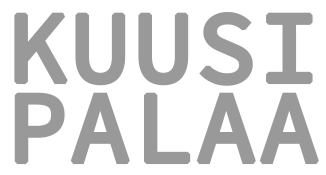Temporary worked fairly well, mostly, as it focused on collectively programming a calendar. But stakeholders in Experiment #2 may be interested in having fixed physical space rather than programming ephemeral events; for example, one person expressed interest in buying a stake if he could have a small cabinet on-site displaying artwork for sale. Others may wish to hang things up or establish semi-permanent structures.
What policies can we determine for sharing space like this? How can the system of stakes/participation pts be used in this way?
-
At 08 November 2017 23:53, hyksos said...
Subgroup to be led by
Henna_Bauhaus (Kata_Meister) , with
 mactwyver,
mactwyver,  hyksos,
hyksos,  Agnes Pockels (agnes_pockels),
Agnes Pockels (agnes_pockels),  jonald dunn,
jonald dunn,  Erich Berger and
Erich Berger and  violetpiascik. But anyone else can feel free to join and contribute, speak up!
violetpiascik. But anyone else can feel free to join and contribute, speak up! -
At 12 November 2017 21:11, jonald dunn said...
i don't have an idea about the negotiation process but the physical space itself. i think we should have a permaculture garden(including humanure system and vermicompost), some tools for making and fixing things, a beamer and printer, lockers for personal items(a crazy idea might be bedroom lockers), a bookshelf or cabinet, a kitchen, a shower and a sauna(to attract more finns), an outreach/transport vehicle, and last but not least a biathlon system. i hope this isn't too concrete but the negotiating process should have concrete things to take into consideration in order to create a realistic process.
-
At 17 November 2017 23:53, scottandreweliott said...
I posted a link to enspiral in another discussion, but one of the things enspiral uses is loomio (https://www.loomio.org/)
(https://github.com/loomio/loomio)
I wonder if it could be reworked to be useful in the exp2 platform? Or something of the like in order to make decisions about use of the space? I also feel like the meetings we've been having for exp2 tend to repeat themselves without committing to anything, and that having some system to vote on proposed ideas or towards finalising a decision that leads to action would be very useful even in this stage of development. Could something like loomio be used as part of these discussion boards? Would this speed up the microgroup discussions? -
At 20 November 2017 23:05, hyksos said...
The problem to me feels more like we have a chicken/egg situation too often, which is why these talks start to get circular.
In theory the stakeholders should have decision making power and something like loomio could be integrated into our system. At the same time we aren't yet to the point of deciding even how stakes will work (at the last meeting there were some real objections to people with more stakes having more voting power, though to me that seems logical and fair).I'm also strongly in favour of keeping things simple and unwritten until necessary. I realise I'm in the minority about this but the project will collapse if people are expected to log in and vote on 15 things per month or have to commit too much time to admin. I realise that few people agree with me on this. -
At 23 November 2017 09:27, Andrea Botero (andreuchis) said...
Hi,
I was wondering if it would be worth to take a look at some of the practices of the catalan integral cooperative. The coop is much bigger in scope that experiment 2 but maybe some of the workings of the subgroups can offer ideas for this?Here a recent report that documents in english some of the stuff https://p2pfoundation.net/wp-content/uploads/2017/10/The-Catalan-Integral-Cooperative.pdf -
At 23 November 2017 22:53, Katarina Meister (Kata_Meister) said...
Potential uses of space:
office
meetings
temporary studio
screenings
small scale permanent installations
dance
storage
snoozing
sleeping
cookingMain point: Keep everything simple and developing gradually, figuring itself out as we go along. When there is a conflict of interests, it will be solved and discussed in the general meeting. Everything can happen as long as someone says “Stop!"
Ideas:
1)movability of things-what does it mean-things on wheels?
2)back room booking system -should not be restricted what you do in there.
This simplifies the things, e.g. forbidden to sleep in the big room (or again, nothing is forbidden until it becomes a problem).What kind of problems does this free space cause?
time: overlapping events,
space: permanent installations taking up space
sound: noise from some activities
modes/usage of the space: sleeping at night, friends staying overCrucial: There still will be two types of people: owners (stake-holders) and visitors (openly welcomed, but not as much ownership attached to the space)
Who takes care of the space? Cleans the toilet? Surfaces, floor?
People have different expectations of space. How to make everybody comfortable?
Who will potentially harm the space? -Most likely not the stake owner, but unknown people from the streetIt should be made clear that by coming in the space you agree: not to attack anyone based on their ethnicity, skin colour, sexual orientation, opinions and you respect the property. We should work on this document together!
